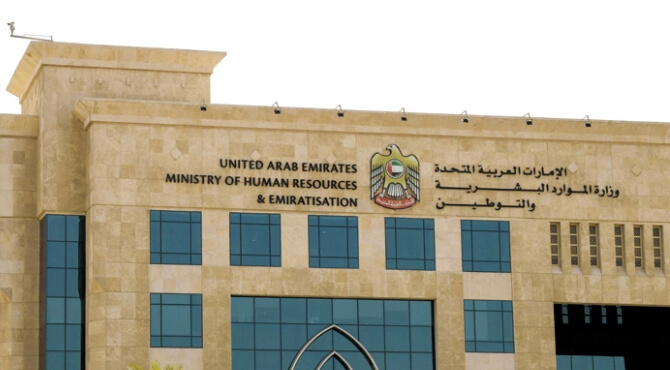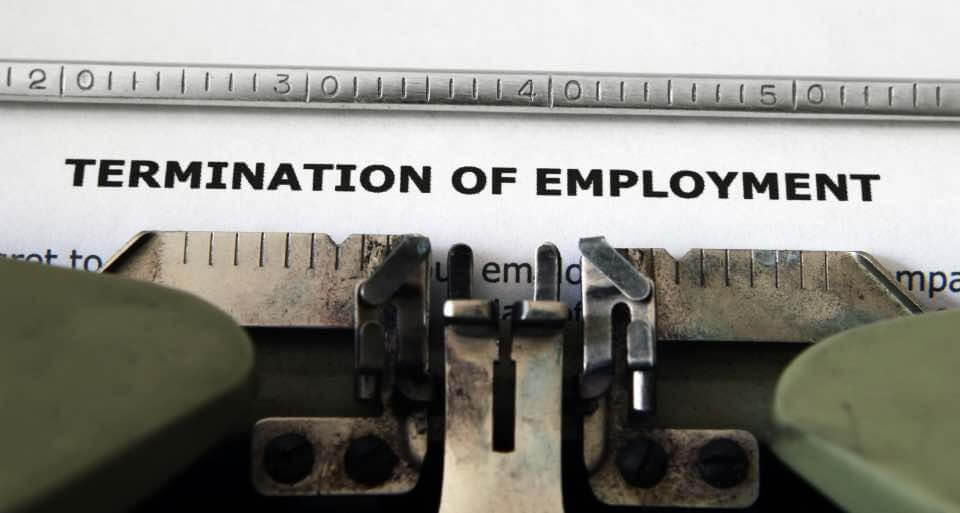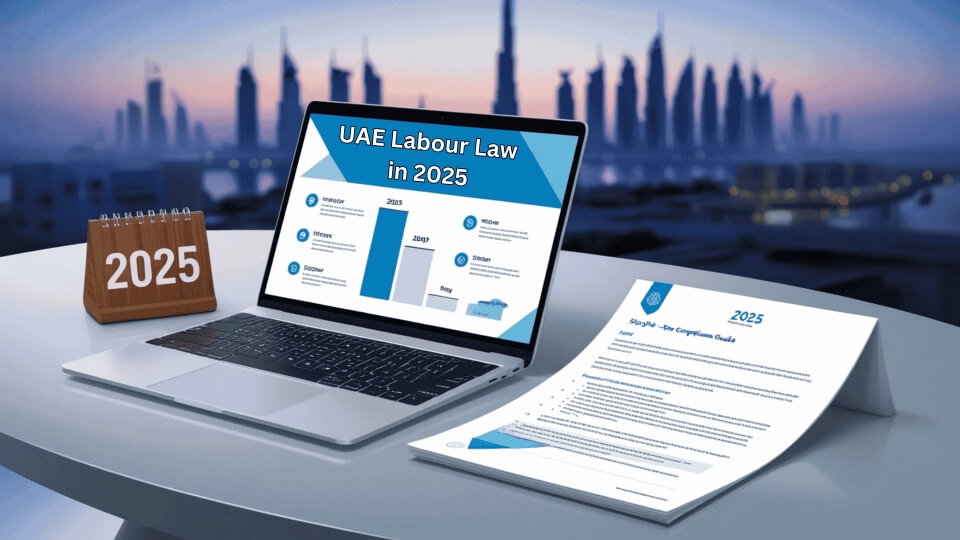Legal blog
How to File an Employment Court Case in the UAE

Tim Elliot: Welcome to Lawgical, the UAE’s first legal podcast, coming to you from the Dubai-based law firm, HPL Yamalova & Plewka. My name’s Tim Elliot. In these continuing COVID times we are socially distanced in JLT, Jumeirah Lakes Towers, at the firm’s offices. I’m sitting opposite the firm’s Managing Partner, Ludmila Yamalova. Good to see you.
Ludmila Yamalova: Great to see you as well.
Tim Elliot: In this edition of Lawgical: How to file an employment court case in the UAE. Ludmila, let’s start with, and this is hypothetical, and I’ll let you ruminate on this, but let’s start with the reasons why you might want to file an employment case in the Emirates.
Ludmila Yamalova: There is a whole series of reasons why you might want to file an employment case.
1. You are not getting paid your salary. As basic as it may sound there are all too many cases like that.
2. You are being terminated and you don’t know why you are being terminated. Perhaps you don’t want to be terminated, and more importantly, you want to be getting paid for being terminated and you perhaps believe that your termination entitlement should be much higher than what you are being offered.
3. You want to move on, for example, to different employment, and your company is not canceling your visa.
4. You are working for a company, and you are providing services, but your visa has expired, ad they are not renewing your visa.
5. Or, for example, you were terminated arbitrarily, and as a matter of principle, you want to prove the company wrong that you were not terminated for a valid reason. There are so many more reasons why people file cases, but ultimately, at the end of the day, it all comes down to money.
Tim Elliot: If you feel you have a case that should be heard, where do you start?
Ludmila Yamalova: Well, number one, what’s important to keep in mind is that for employment cases in the UAE, there is what is called - a legal term – the statute of limitation. The statute of limitation is the period during which you can file an employment case. In the UAE the statute of limitation is one year. It is one year from the time that your cause of action arose. For example, if you were terminated on January 1, 2021, the latest that you can bring your employment case would be December 31, 2021. That’s important to remember.
Now, in many cases the date when the cause of action arose is not necessarily so clear because somebody, for example, may want to argue that they are entitled to bonuses and the bonuses were due maybe two years earlier, so the calculation of the statute of limitations is not always as clear cut as one may think. But one way or the other, whatever it is you think, at the end of the day, if you are terminated on a certain date, and for example, you were supposed to get your entitlements within three months, and then you don’t get paid those entitlements within those three months, then your statute of limitations does not start running from January 1, 2021, but starts running from the time when you actually did not get your entitlements paid, which is three months later.
These are just a few examples of factors that go into calculating the statute of limitation. That is number one, identify the time frame and make sure to act within this particular term.
Number two is before you file a court case anywhere in the UAE, for the most part, perhaps except the DIFC jurisdiction, you will first need to file a request or a claim with the particular licensing authority that oversees the company or regulates the company where you used to work. For example, if it’s in the free zone, it will be that particular free zone. If it is under the Department of Economic Development or the mainland, it would be under the Ministry of Human Resources & Emiratisation, or the Labor Department, previously known.
This means whenever you have a dispute, you cannot just go to court. You need to first file your request with one of those authorities. Let’s call it either the Labor Department or a free zone authority. Then you lodge your complaint with them, and on the back of the complaint, they will schedule what is called the mediation. Now, meditation, importantly, is a mandatory step in the process, but it is not obligatory in the sense of it is not that the mediation authority has the ability to force parties to settle, or to force parties to mediate, or to force parties to even attend. While it is a mandatory step in the process, it’s not a requirement for either party to come.
If the parties don’t come to mediation, then ultimately mediation will be deemed to have failed. So once the mediation has failed, then you need to request from the particular authority or from the Ministry of Labor, a NOC, or a no-objection certificate, or a transfer letter to go to court. Only then, with that transfer letter, you can now consider filing a case in court. Now, importantly, if you are coming from a free zone, and your transfer letter is from a free zone, before you file a formal court case, you need to transfer that transfer letter or the NOC into a format that is suitable for the Dubai courts or through the Ministry of Labor.
It’s more of an administrative step, but it’s important you ultimately take a letter from a free zone and make sure that same letter, the content of that letter is now being published on the template of the Ministry of Labor authority. That is important because that’s a technical rule or requirement in the UAE procedure, and if you don’t do it then the case can be dismissed, even at the very last stage.
Tim Elliot: Let’s say you’re at this point. You lodged a complaint. What kind of documents and/or evidence is acceptable and should be presented?
Ludmila Yamalova: For the purposes of lodging the complaint with the licensing authority or the Ministry of Labor, you just need to submit your employment agreement and in most cases all those employees who are licensed properly and registered properly with those authorities, the authorities have all the other documents, and that is, even the employment agreement is already registered with them.
But in addition to that, payslips, any other kind of documents that perhaps would not necessarily be registered or lodged with the authorities as a part of the employment, such as bonuses, or even an offer letter, any other correspondences that ultimately you would want to rely on in trying to prove or argue your case, and usually it is a manner of money, so any other documents that would show that you are entitled to whatever amount of money that you are claiming.
For the purposes of licensing authorities, you don’t need to translate them, and that is for the purposes of mediation. So, when you go to mediation, you file with the licensing authority, you don’t need to translate them. You just bring those documents, and again, remember the other party does not need to appear. But once you are ready to go to court, then you will need to gather all those documents and then have them legally translated into Arabic. This is very important because in the local courts, all the proceedings are in Arabic and all documents by law are required to be legally translated into Arabic. Remember, it’s not just an Arabic translation. There has to be a legal translator stamp attached to every document.
Now, important also as part of the document, you need to submit whatever other correspondences that may exist. WhatsApp correspondences, for example, email correspondence, all those documents in the UAE these days are admissible evidence. Therefore, if you are wanting to rely on any of those documents, know they are admissible and make sure that you have them legally translated before filing with the authority. These are the documents. But the first step when you file with the court is that you file what is called a Statement of Claim. A Statement of Claim is a fairly simple form where you ultimately state your claim. These documents are then attached to the Statement of Claim in support of your arguments.
With regard to the format of how to file, there are two ways of doing it. (1) It can go to what is called a typing center or Al Adheed in basically every emirate, and you submit your request through that particular typing center. (2) The other way of doing it is through the online portal. Especially in light of COVID-19, the UAE and the Smart Government have really made many leaps forward in terms of their development, so a lot more court services, as well as other government services, are now available online, including filing a court case. You do need to follow some process. You need an Emirates ID and a number of other documents at hand in order to be able to file online, but you can do it either through the typing center or through the online portal.
Tim Elliot: Let’s talk about the money. What about fees? What’s associated when you file a claim?
Ludmila Yamalova: Yes. If your claim is for below 100,000 dirhams, which is about $30,000, and you are an employee filing a case with the court, then that particular court filing fee is waived. If you are a company and you file against your employee, even if it is for less than 100,000 dirhams, you are still required to pay 5% of the claim amount. Those are the fees that you have to pay to the court for the Court of First Instance. In the UAE, we have three court stages.
1. The Court of First Instance.
2. The Court of Appeal.
3. The Court of Cassation.
At the Court of First Instance, you pay 5%, and then any claims that are below 50,000 dirhams actually cannot be appealed. Then if you want to, particularly if you have a claim for let’s say 100,000 dirhams, then at the Court of Appeal you have to pay 2.5% of the claimed amount. So, as you go up the ladder, then the fees get smaller in terms of court fees. In addition to the court fees, you also need to allocate some funds for legal translations, but also for a court expert. In most cases, or in many cases, employment cases, in particular, courts appoint what is called a court expert. Court experts can cost anywhere between 5,000 dirhams to 15,000 dirhams. This is important to remember when you are budgeting your cost for filing an employment case.
Tim Elliot: A court expert navigates the waters, as it were, I guess? Do they lead you through the process?
Ludmila Yamalova: The case experts are a bit of a unique concept to the UAE judicial system. It’s ultimately, if you will, kind of like a court assistant who helps the judge go through, let’s say in an employment case, the monetary and factual parts of the claim in terms of reviewing. Let’s say if it’s a claim for compensation and bonuses, they will review the financial statements, the bank statements, the payslips, the various correspondences, including offer letters, bonus letters, and such, and will determine, for example, that yes, there was a provision for a bonus, and yes, there was a bonus that was paid, and the bonus was for this amount, and therefore, that particular bonus now needs to be factored into the overall compensation.
Tim Elliot: Two what-if questions to finish off. Let’s say you win. How can you enforce a judgment and get what you’re due? What if you don’t win, how do you lodge an appeal?
Ludmila Yamalova: For an appeal, it’s the same process as filing a court case. Anything below 50,000 dirhams, you cannot appeal. If it’s above 50,000 dirhams, you can appeal it to the second level, and that is to the Court of Appeal. Anything above 500,000 dirhams, which is about $150,000, can be appealed to the Court of Cassation, but below 500,000 dirhams can only be appealed to the Court of Appeal and not any higher. But any claims above 500,000 dirhams can be appealed to the Court of Cassation. And those fees do go down.
Again, for the Court of First Instance, it is 5%. At the Court of Appeals, it is 2.5%. At the Court of Cassation, it is a 2,000-dirham fixed fee for the court fees. That is with regard to the fees on the appeal. Once you have your final judgment, and the final judgment can be a result of a Court of First Instance, or a Court of Appeal, or a Court of Cassation. Once you have a final judgment, then you can move to what is called enforcement. That is a separate process in the UAE judicial process. It is proceedings that allow you to start enforcing against the defendant, against the party, and start seizing their assets.
So, enforcement costs 2% of the claimed amount, and as part of the enforcement proceedings, you will have a separate file that is an enforcement file. As part of it, then you will be able to inquire through the courts where this particular defendant might have assets. The court would normally issue letters, for example, to the different licensing authorities, different banks, the Land Department or the Transportation Authority, to see if that defendant has any assets, and then on the back of that, you will be able to, again through the court, request for the court to seize and liquidate those assets in order to pay your judgment amount.
Tim Elliot: That’s another Lawgical. In this edition: How to go about filing an employment case here in the Emirates. Our legal expert here on Lawgical, as ever, Ludmila Yamalova, the Managing Partner at Yamalova & Plewka, thanks once again for your legal expertise.
Ludmila Yamalova: Always a pleasure, and thank you, Tim.
Tim Elliot: If you have a legal question you need to be answered in a future episode of Lawgical, or if you’d like a consultation with a qualified UAE experienced legal professional, you can contact LYLawyers.
Written by:
Ludmila Yamalova | HPL Yamalova & Plewka DMCC

This publication is for general information purposes only. It does not purport to provide comprehensive full legal or other advice.
Legal Advice Middle East and the contributors accept no responsibility for losses that may arise from reliance upon information contained in this publication. This publication is intended to give an indication of legal issues upon which you may need advice.
Full legal advice should be taken in due course from a qualified professional when dealing with specific situations.





